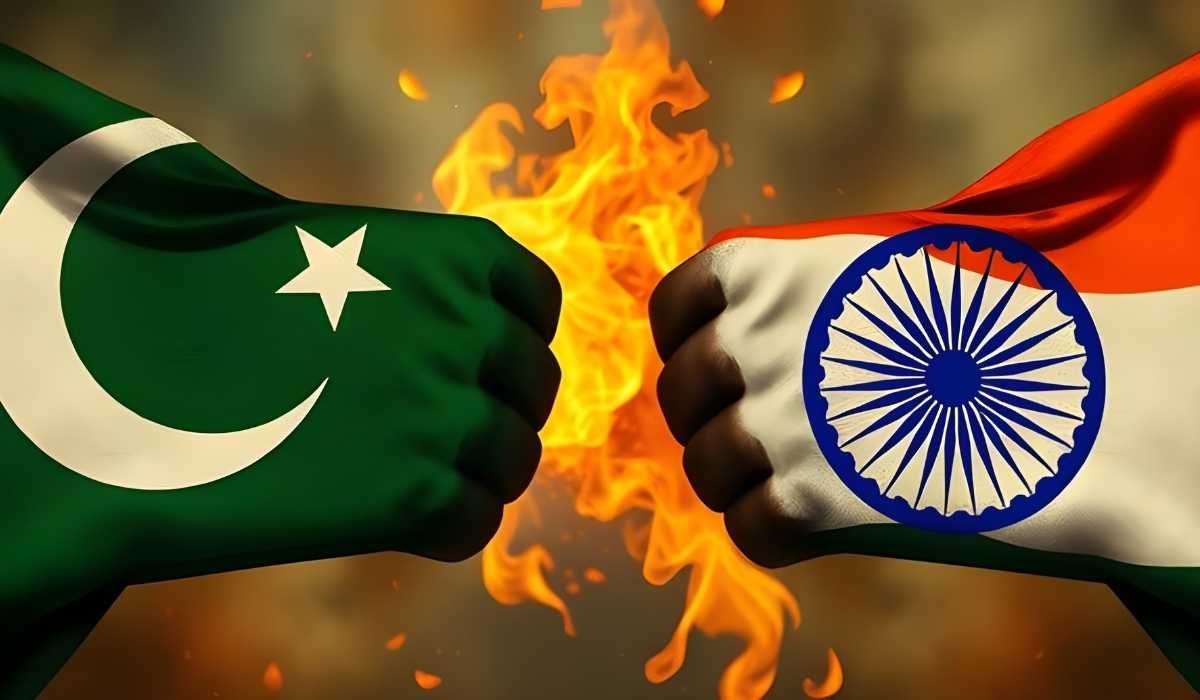The ceasefire agreement between Pakistan and India represented a significant diplomatic breakthrough for the two nations with a long-standing history of conflict. While the pact has been a step towards stability, recent events have tested the durability of this understanding. Allegations of provocations, inflammatory rhetoric, and accusations from both sides continue to stoke tension, despite the agreement’s existence.
This blog examines Pakistan’s steadfast commitment to the ceasefire, its response to India’s remarks, and how both sides are navigating this tenuous peace.
Table of Contents
Pakistan’s Commitment to the Ceasefire
Pakistan has reaffirmed its commitment to the ceasefire understanding with India despite recent provocations. The Foreign Office (FO) emphasized that while Pakistan seeks peace, any future aggression will be met with full resolve.
The FO released a statement describing Pakistan’s approach to closely monitoring Indian actions. Measures are being taken to preserve Pakistan’s sovereignty, ensuring the country is ready to counter any violations of the agreement.
The ceasefire agreement, reached through cooperation with friendly nations, aims to reduce troop deployments and maintain regional stability. Both sides’ military commanders have committed to upholding the truce, reflecting its importance in preventing escalation along the international border.
Rejection of Inflammatory Rhetoric
Recently, Indian Prime Minister Narendra Modi made remarks accusing Pakistan of retaliatory strikes and alleged terrorism sponsorship. Pakistan rejected these assertions as “provocative and inflammatory.” According to Pakistan’s Foreign Office, the statements are rooted in misinformation and disregard for international law.
Pakistan views such rhetoric as a dangerous escalation designed to serve political objectives and reinforce a narrative of perpetual hostility. Diplomats in Islamabad argued that peace requires mature leadership, not rhetoric, that brings the region closer to conflict.
Dismissal of Indian Accusations
Prime Minister Modi’s claim that Pakistan sought a ceasefire after a failed retaliation was met with strong rejection. Pakistan labelled the assertion a “blatant lie,” clarifying that the ceasefire resulted from diplomatic efforts by friendly nations, not political leverage.
The FO highlighted the need for global impartiality, urging the international community to remain vigilant about India’s actions. They also warned that Pakistan would continue to take necessary measures to ensure its sovereignty was upheld.
Both nations have agreed to further discussions, focusing on the practical implementation of the ceasefire agreement. These talks aim to uphold the truce and minimize troop movements to avoid unnecessary friction.
Condemnation of Actions
Pakistan has condemned India’s alleged violations of international norms, notably the killing of civilians and unilateral decisions that pose risks to regional peace. Specific reference was made to India’s breaches of the Indus Waters Treaty, a critical agreement governing water-sharing rights between the two countries.
The Foreign Office reiterated Pakistan’s intention to take necessary steps to safeguard its rights under the agreement. It also called on the international community to hold India accountable for such actions, which Pakistan claims undermine trust and regional stability.
New Policies and Red Lines
During a highly publicized speech, PM Modi declared India would “not tolerate nuclear blackmail” or “state-sponsored terrorism.” These statements signalled a shift in India’s diplomatic policy, with new conditions for dialogue, including the context of terrorism and the Kashmir issue.
Pakistan dismissed these remarks, stressing that its commitments to peace, diplomacy, and international norms should never be mistaken for weakness. Islamabad urged both parties to prioritise cooperation and de-escalation, rather than military posturing.
Drone Incident in Lahore
Adding to the tensions, Pakistan’s security forces recently intercepted and seized an alleged Indian surveillance drone near Lahore airport. This drone was reportedly brought down using GPS jamming technology.
Pakistan has labelled the incident a violation of the ceasefire agreement, accusing India of espionage and provocations. Diplomatic channels are expected to address the issue, as both sides continue to interact under fragile circumstances.
FAQs
What is the significance of the ceasefire agreement between Pakistan and India?
The ceasefire agreement serves as a crucial mechanism to reduce hostilities, particularly along the Line of Control (Loc). Its goal is to prevent unnecessary loss of life, maintain regional stability, and foster better diplomatic relations between the two neighbours.
Why did Pakistan reject PM Modi’s claims about the ceasefire?
Pakistan dismissed PM Modi’s assertions as misinformation and political manoeuvring. Islamabad clarified that the ceasefire agreement was facilitated by friendly nations and had no link to any alleged Pakistani retaliation.
What are Pakistan’s concerns about India’s actions regarding the Indus Waters Treaty?
Pakistan accuses India of unilaterally violating the treaty, which governs the use of shared water resources. According to Pakistan, such actions threaten its sovereignty and could further escalate tensions.
What happened with the Indian drone in Lahore?
Pakistan intercepted an Indian surveillance drone using GPS jamming technology. This act was deemed a provocative violation of the ceasefire agreement and has contributed to the current strain in relations.
Moving Forward for Peace
Despite existing provocations, Pakistan continues to emphasize its commitment to the ceasefire agreement while safeguarding its sovereignty. Diplomatic efforts from both sides and third-party facilitation remain critical to managing these tensions.
For peace to truly prevail between Pakistan and India, both nations must adopt a spirit of cooperation and honour their shared agreements. The complex dynamics of this region require nuanced leadership and mutual respect to foster a future where prosperity takes precedence over conflict.

